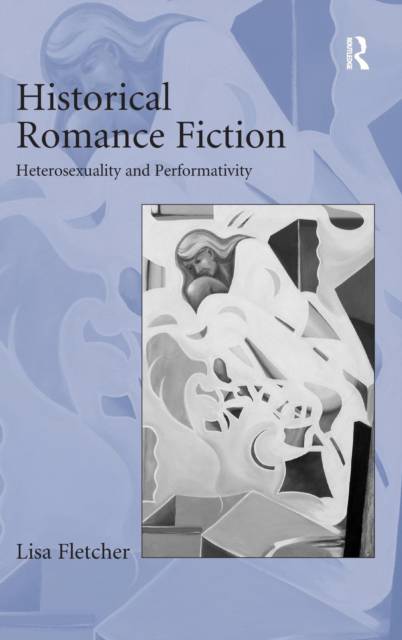
Bedankt voor het vertrouwen het afgelopen jaar! Om jou te bedanken bieden we GRATIS verzending (in België) aan op alles gedurende de hele maand januari.
- Afhalen na 1 uur in een winkel met voorraad
- In januari gratis thuislevering in België
- Ruim aanbod met 7 miljoen producten
Bedankt voor het vertrouwen het afgelopen jaar! Om jou te bedanken bieden we GRATIS verzending (in België) aan op alles gedurende de hele maand januari.
- Afhalen na 1 uur in een winkel met voorraad
- In januari gratis thuislevering in België
- Ruim aanbod met 7 miljoen producten
Zoeken
€ 305,45
+ 610 punten
Omschrijving
The first book-length study of romance novels to focus on issues of sexuality rather than gender, Historical Romance Fiction moves the ongoing debate about the value and appeal of heterosexual romance onto new ground, testing the claims of cutting-edge critical theorists on everything from popular classics by Georgette Heyer, to recent 'bodice rippers, ' to historical fiction by John Fowles and A.S. Byatt. Beginning with her nomination of 'I love you' as the romance novel's defining speech act, Lisa Fletcher engages closely with speech-act theory and recent studies of performativity. The range of texts serves to illustrate Fletcher's definition of historical romance as a fictional mode dependent on the force and familiarity of the speech act, 'I love you', and permits Fletcher to provide a detailed account of the genre's history and development in both its popular and 'literary' manifestations. Written from a feminist and anti-homophobic perspective, Fletcher's subtle arguments about the romantic speech act serve to demonstrate the genre's dependence on repetition ('Romance can only quote') and the shaky ground on which the romance's heterosexual premise rests. Her exploration of the subgenre of cross-dressing novels is especially revealing in this regard. With its deft mix of theoretical arguments and suggestive close readings, Fletcher's book will appeal to specialists in genre, speech act and performativity theory, and gender studies.
Specificaties
Betrokkenen
- Auteur(s):
- Uitgeverij:
Inhoud
- Aantal bladzijden:
- 186
- Taal:
- Engels
Eigenschappen
- Productcode (EAN):
- 9780754662020
- Verschijningsdatum:
- 28/03/2008
- Uitvoering:
- Hardcover
- Formaat:
- Genaaid
- Afmetingen:
- 156 mm x 234 mm
- Gewicht:
- 439 g

Alleen bij Standaard Boekhandel
+ 610 punten op je klantenkaart van Standaard Boekhandel
Beoordelingen
We publiceren alleen reviews die voldoen aan de voorwaarden voor reviews. Bekijk onze voorwaarden voor reviews.









